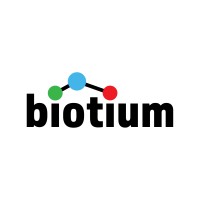CD4 Monoclonal / CF594 / C4/206
Product Details
| Description | CD4 Monoclonal Mouse Antibody (C4/206) | |
|---|---|---|
| Conjugate | CF594 | |
| Clone | C4/206 | |
| Target Species | Human | |
| Applications | FC, IF | |
| Supplier | Biotium | |
| Catalog # | Sign in to view product details, citations, and spectra | |
| Size | ||
| Price | ||
| Antigen | ||
| Host | ||
| Isotype |
About CD4
This gene encodes the CD4 membrane glycoprotein of T lymphocytes. The CD4 antigen acts as a coreceptor with the T-cell receptor on the T lymphocyte to recognize antigens displayed by an antigen presenting cell in the context of class II MHC molecules. The CD4 antigen is also a primary receptor for entry of the human immunodeficiency virus through interactions with the HIV Env gp120 subunit. This gene is expressed not only in T lymphocytes, but also in B cells, macrophages, granulocytes, as well as in various regions of the brain. The protein functions to initiate or augment the early phase of T-cell activation, and may function as an important mediator of indirect neuronal damage in infectious and immune-mediated diseases of the central nervous system. Multiple alternatively spliced transcript variants encoding different isoforms have been identified in this gene. [provided by RefSeq, May 2020]
This gene encodes the CD4 membrane glycoprotein of T lymphocytes. The CD4 antigen acts as a coreceptor with the T-cell receptor on the T lymphocyte to recognize antigens displayed by an antigen presenting cell in the context of class II MHC molecules. The CD4 antigen is also a primary receptor for entry of the human immunodeficiency virus through interactions with the HIV Env gp120 subunit. This gene is expressed not only in T lymphocytes, but also in B cells, macrophages, granulocytes, as well as in various regions of the brain. The protein functions to initiate or augment the early phase of T-cell activation, and may function as an important mediator of indirect neuronal damage in infectious and immune-mediated diseases of the central nervous system. Multiple alternatively spliced transcript variants encoding different isoforms have been identified in this gene. [provided by RefSeq, May 2020]
About CF594
CF®594 from Biotium is a fluorophore with an excitation peak at 593 nm and an emission peak at 614 nm. It can be useful in both fluorescence microscopy and flow cytometry. It is spectrally similar to Alexa Fluor™ 594, DyLight™ 594 and Texas Red. However, in flow cytometry, PE-CF®594 and PE-Dazzle 594 are superior alternatives. In microscopy, CF®594 has been validated in STED and 2-Photon microscopy.
CF®594 from Biotium is a fluorophore with an excitation peak at 593 nm and an emission peak at 614 nm. It can be useful in both fluorescence microscopy and flow cytometry. It is spectrally similar to Alexa Fluor™ 594, DyLight™ 594 and Texas Red. However, in flow cytometry, PE-CF®594 and PE-Dazzle 594 are superior alternatives. In microscopy, CF®594 has been validated in STED and 2-Photon microscopy.
Experiment Design Tools
Panel Builders
Looking to design a Microscopy or Flow Cytometry experiment?
Validation References
Reviews & Ratings
| Reviews |
|---|
Looking for more options?
6549 CD4 antibodies from over 61 suppliers available with over 260 conjugates.





